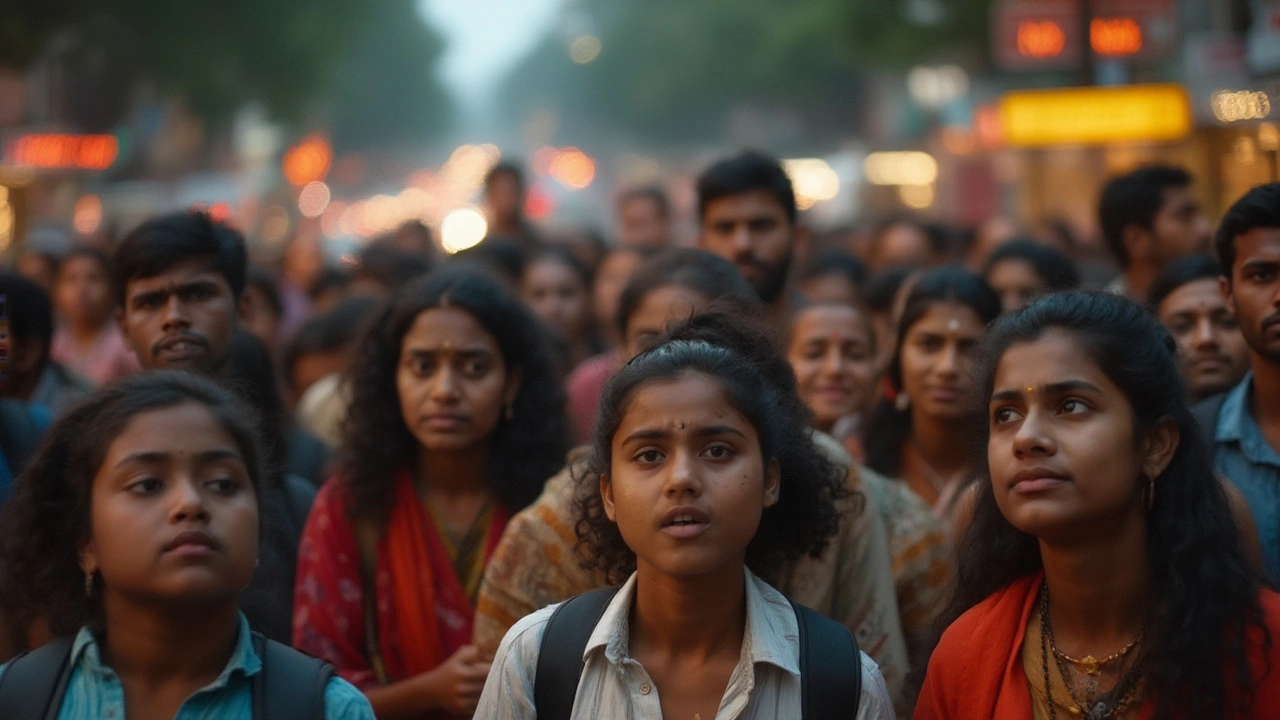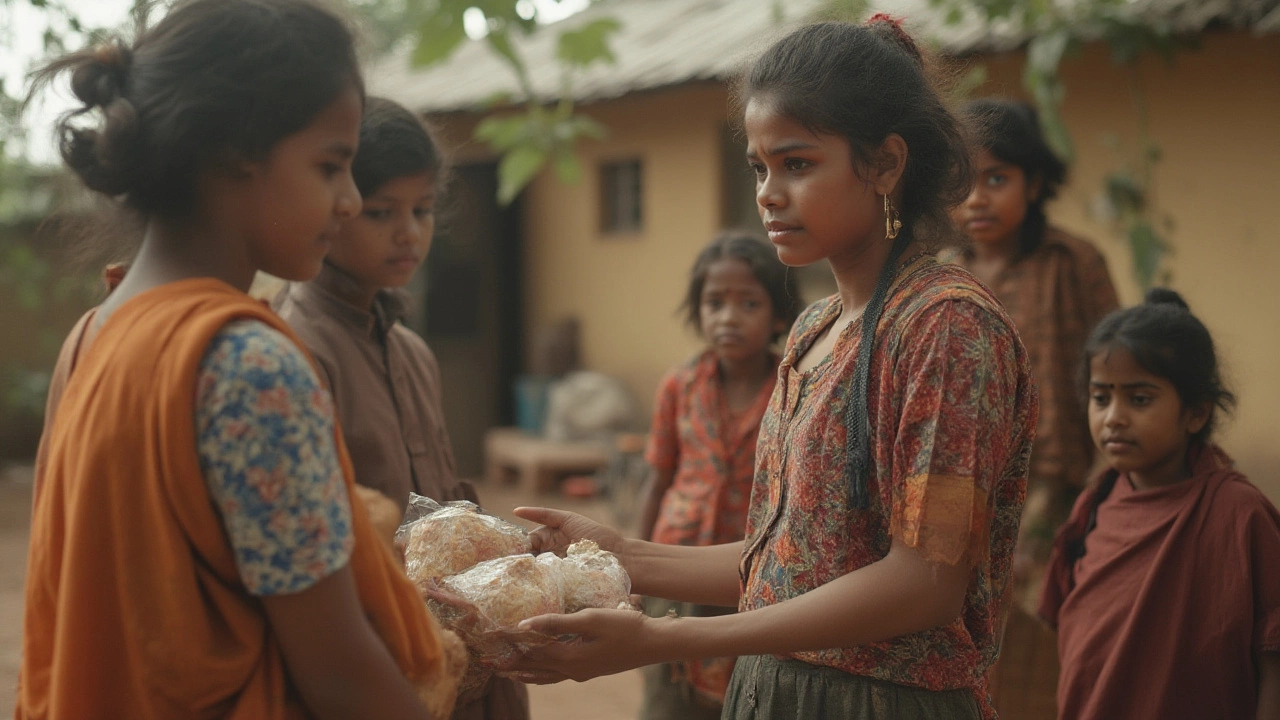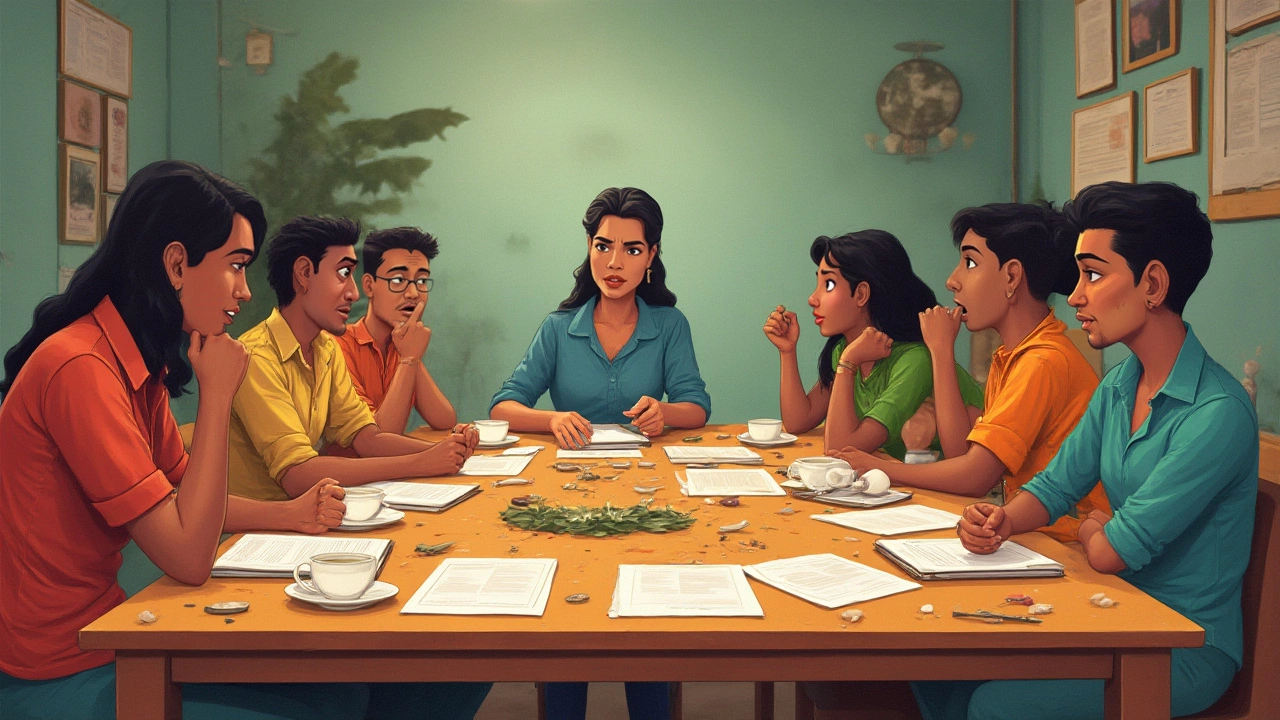
- Created by: Lydia Carmichael
- Completed on: 24 Jul 2025
- Categories: Volunteering
Everyone loves a good volunteer story—the person who spent their summer planting trees, the friend who rescued cats at the shelter, even that mate who spent weeks building classrooms in Tonga. These tales feel good to share and even better to hear. But what gets swept under the rug is the other side: the stress, the disappointments, the head-scratching moments when you're not sure if you made any real difference at all. Not all volunteering is hearts and medals. Some of it can bring unexpected headaches, tough lessons, or long-lasting exhaustion. The goal here isn’t to rain on anyone’s parade. It’s about zooming in on the stuff nobody talks about at the thank-you morning teas—the hidden negatives of volunteering that can sneak up on even the most passionate of us.
The Emotional Toll: Burnout, Stress, and Compassion Fatigue
The phrase “giving back” sounds simple, but have you ever met a volunteer who looks ready to cry in the staff kitchen? Burnout is far from rare. Whether you’re sorting food parcels at Wellington City Mission or mentoring at-risk teens on Saturday mornings, the emotional strain can build quickly. According to Volunteer New Zealand, as many as one in three long-term volunteers report signs of burnout: feeling drained, irritable, or completely disengaged. When your empathy tank empties out, you find it hard to care even when you want to. That’s compassion fatigue.
For some, guilt piles on top. They worry that stepping away will let down people depending on them. Research from Australia’s Volunteering Support Services found almost 60% who quit regular volunteering experienced ongoing guilt or emotional distress. If you’re volunteering in mental health, animal rescue, or disaster relief, the emotional highs and lows can feel like whiplash. Add in a few sleepless nights—if your brain keeps replaying that tough conversation or heartbreak you saw—and it’s easy to see how good intentions lead to lasting exhaustion.
It can even mess with job performance or uni grades. A local survey run by Massey University in 2024 discovered that students volunteering more than five hours per week saw a measurable drop in GPA unless they strictly capped their hours and set boundaries. Emotional spillover is a real risk: feeling overwhelmed at your regular job or studies because of volunteer time is a subtle but powerful downside.
The Reality of Poor Management and Waste
Let’s be blunt: not all volunteering gigs are created equal. Sometimes, the organisation itself is the problem. Sloppy management, lack of guidance, or simply poor communication can sap your enthusiasm fast. Ever shown up and had nobody remember your name, or had zero clue what you were supposed to do? A study from the Centre for Social Impact found 28% of volunteers felt “disorganisation” was their biggest frustration.
The waste isn’t always just hours lost sorting the same jumble of books every shift. Sometimes, it’s funding decisions that leave you standing around. Or the key project you built excitement for never gets off the ground. There’s a real-world Wellington example—an environmental beach clean-up in 2023 that had so many volunteers and not enough rubbish that people ended up collecting seaweed and driftwood just to look busy. Too much volunteer power, not enough meaningful work, can lead to a sense of futility.
The bigger the charity, often the harder to navigate. Layers of management, shuffled meeting times, or long waits for basic feedback can make even the most motivated helper throw up their hands. People want to feel useful, not like a spare part. If the organisation doesn’t value your time, you end up questioning why you keep showing up.

Unintended Consequences: When Helping Hurts
It’s hard to swallow, but sometimes volunteering backfires. The term for this is “when helping hurts.” Take “voluntourism”—those well-intentioned trips abroad to paint orphanages or dig wells. Studies, including a detailed 2023 University of Otago review, show that unskilled or poorly planned foreign volunteer work can actually displace local workers or create dependency on outside help. More than half the surveyed Pacific volunteers said projects fizzled after overseas helpers left. Locals felt patronized. The volunteers left disillusioned.
Here in New Zealand, similar issues pop up when volunteers are parachuted into communities without proper training or cultural awareness. The 2022 report from the New Zealand Council of Social Services found mismatches between volunteers and community needs in over 35% of short-term placements. Sometimes, just wanting to help isn’t enough—you can unintentionally do more harm than good.
| Issue | Percentage of Volunteers Affected (NZ, 2023) |
|---|---|
| Burnout/Emotional Stress | 34% |
| Poor Organisation/Disorganisation | 28% |
| Unintended Harm to Community | 18% |
| Financial Cost to Volunteer | 31% |
Unintended consequences can show up as well-meaning projects being abandoned, locals left worse off, or money being wasted. Helping isn’t just about effort. It’s about knowing when to step back and ask if your time or skills are actually needed, or if you’re just there to tick a feel-good box.
Personal Cost: Financial and Professional Downsides
Volunteering seems “free,” but that’s not always true for the volunteer. Hidden costs—bus fares, petrol, childcare—add up fast. In Wellington alone, bus fares for regular volunteers can top $30 a week, especially with services scattered around the city. Coffee runs, uniforms (yep, even just ‘suggested’ ones), or missed hours at your part-time job can quietly drain your wallet.
Then there’s the professional angle. Not every employer is thrilled by your extra-curricular efforts, particularly if you’re coming in tired or needing time off for a fundraiser. According to a SEEK NZ job market poll, nearly one in five young workers felt their volunteering commitment was viewed as a distraction at work. Sure, volunteering can look fantastic on a CV. But overdoing it? That can look like you’re scattered or unable to prioritise.
Career burnout is a sneaky risk if you’re always “on” for someone else after hours. Volunteers chasing experience may accept unpaid gigs hoping they’ll unlock paid roles, only to end up stuck on the “free work” treadmill. Knowing when to step back—when it’s costing more than you can afford, financially or mentally—isn’t about selfishness. It’s self-preservation. If you want to keep helping others, you need to look after yourself too.

Ethical Dilemmas and Cultural Sensitivity
Volunteering should respect, not override, local cultures and values. Sometimes, well-meaning volunteers unintentionally trample over important traditions. In 2023, a group of overseas volunteers in Hawke’s Bay built a playground at a marae without consulting iwi. The equipment didn’t meet local safety or cultural requirements, forcing its removal and sowing distrust between the charity and community.
Ethical questions get tricky fast. Should you volunteer for an event or group whose beliefs don’t align with your own? Are you displacing jobs locals could be paid for? Many New Zealanders, especially in smaller communities, feel pressure to “just say yes,” even when the role doesn’t sit right with them. There’s also the issue of informed consent—working directly with tamariki or kaumatua requires robust checks, sometimes missing in smaller charities.
Then there’s the “white saviour” stereotype—a real problem for international volunteers. High-profile NGOs now warn against Westerners swooping in without listening to local needs first. The best volunteers are humble learners, not self-appointed heroes. Being aware of your own impact, being open to feedback, and listening before acting can be hard but necessary steps to building real, respectful connections. If in doubt, ask the community what they need—not just what you want to give.